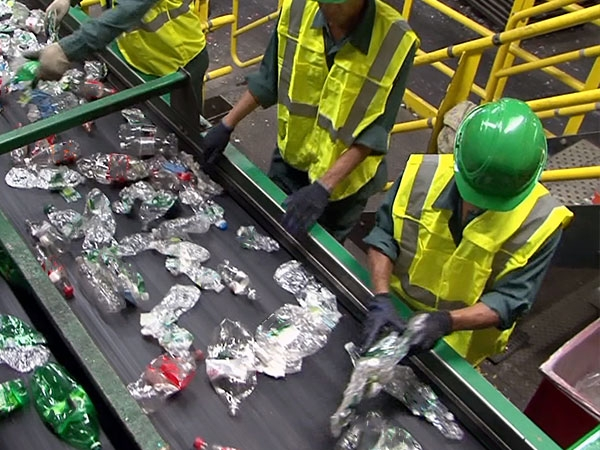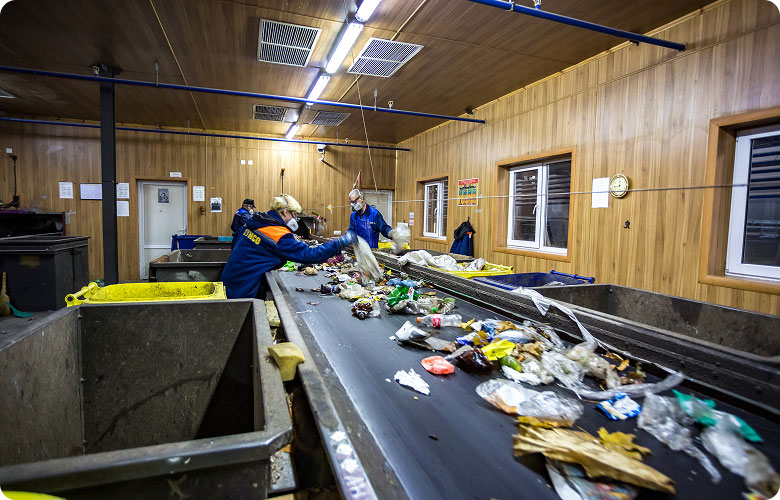
Year by year, sustainability has become an essential principle of many industries.
Customers want transparency and assurance that the brands they support are using their money responsibly. Sustainability regulations are on the rise, including mandatory regulations and voluntary reporting. Focus on environmental, social, and governance factors (ESG) has grown steadily in recent history and will only continue to grow.
Organizations that recognize this desire and rise to embrace it have a competitive edge in appealing to consumers. Additionally, reducing waste often means cutting their own costs.
Product recovery using reverse logistics helps to keep materials out of landfills and in use for as long as possible, maximizing resource efficiency. The result is a win-win: lower costs for companies and less wear and tear on the planet.
Why does sustainability matter? The name is a hint: sustainable companies have longevity.
Pressure to embrace sustainable business practices has been steadily increasing over the years. Consumers are increasingly savvy about earth-friendly practices. ESG regulations have only increased. The businesses that embrace these changes often find unexpected benefits and tend to stick around.
Many consumers expect to see the brands they support engaging in sustainable practices for a product’s entire lifespan. This includes everything from ethical sourcing of raw materials to waste reduction to product recycling. Meeting these expectations requires transparency along with material changes to traditional supply chain management.
Product recovery is the key to transitioning from a linear supply chain to a circular one. Circular waste management keeps materials in use for as long as possible, rather than using and immediately discarding. Without robust product recovery systems, there's no way for companies to regain their valuable materials.
Looking forward, product recovery may become more of a rule than an exception. Extended Producer Responsibility (EPR) legislation has been introduced in 12 states this year and aims to make producers responsible for end-of-life products, such as packaging.
Smart companies are exploring product recovery now, rather than waiting for regulation. Product recovery and circular supply chains are a responsible way to practice sustainability, adhere to EPR principles, and become more cost-effective.
Effective product recovery and circular supply chains are supported by robust reverse logistics strategies. Developing an efficient system for moving materials “backwards” through the supply chain, from consumer to manufacturer, is essential for extending the lifespan of materials.
Reverse logistics systems reduce reliance on traditional waste disposal by limiting the amount of waste produced, improving environmental sustainability. Recovering used materials is more cost-effective and planet-friendly than continuously sourcing new raw materials and simultaneously creating waste.
Fully sustainable supply chain strategies must also account for material discarded during manufacturing processes. Regulations tend to highly control industrial waste disposal. However, this doesn't mean industrial waste can't be recycled.
With a knowledgeable partner, many types of industrial waste are recyclable. Recycling industrial waste often cuts the costs of fully disposing of these materials by keeping them in circulation.
Even hard-to-recycle materials can be disposed of in a “greener” way. Waste-to-energy efforts are a great complement to industrial waste recycling as well as product recovery. Each strategy is a key component of sustainable waste management.
While planning a more sustainable supply chain might seem overwhelming, AI tools have proven to make the process much easier. Throughout the supply chain, AI can analyze vast amounts of data to find patterns and opportunities to improve.
One area where AI can be particularly helpful is predictive waste management. By analyzing waste patterns, AI tools can predict demand for products and thus guide companies to produce appropriately. This lessens the chances of over- or under-producing, saving companies money and keeping excess product from going to waste.
Additionally, AI and blockchain can be utilized to track materials throughout the entire supply chain. This precise tracking enhances control for companies and can be useful in identifying opportunities for becoming more efficient. Tracking materials also benefits the consumer, who enjoys more transparency about where exactly each aspect of their product originates.
The rise of sustainability and EPR regulations has led many companies to adopt new kinds of sustainable packaging. Compostable and biodegradable packaging are incredibly common–even packaging made of as unlikely a material as seaweed. Eliminating single-use packaging through refillable or minimalist systems is also a popular trend in sustainable packaging. Redesigning packaging is an excellent way to adhere to EPR principles and keep waste out of landfills.
Recycling is still a reliable strategy for practicing sustainability as well. PET, aluminum, glass, and other common beverage packaging can be transformed into usable material and reintegrated into the supply chain. Responsible packaging disposal with a trusted partner, product recovery, and reverse logistics helps companies keep up with EPR regulations.
Read more about sustainable materials management on the EPA website.
Parallel Products has set the bar for recovery and reuse. Our expertise is end-to-end, including everything from logistics services to assistance with tax compliance. As experts in sustainable waste management, Parallel Products is positioned to help your brand become an industry leader in green practices.
One aspect that sets Parallel Products apart is our focus on reclamation. Unsaleable beauty products and personal care items, for example, can be repurposed into renewable fuels. Strategies such as these reduce disposal costs for the companies we serve, which otherwise would have to pay to dispose of hazardous waste. Additionally, these materials no longer go to landfills, reducing the company’s carbon footprint.
Organizing product recovery and a sustainable supply chain can be daunting. But most industries are heading in that direction. You need a partner with expertise in product recovery, reverse logistics, and circular supply chain strategies to save you money and make your business greener.
Contact Parallel Products today for sustainable solutions tailored to your needs.
